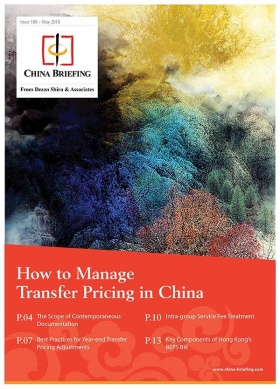China Slashes Import Tariffs on Consumer Goods
China will slash import tariffs on a range of consumer goods, the State Council announced on May 30.
The tariff cuts, which will go into effect on July 1, 2018, will substantially lower tariffs on goods such as apparel, cosmetics, cleaning products, home appliances, fitness products, and some healthcare products.
In total, tariffs on 1,449 categories of goods will be lowered.
Significant changes include import reductions on:
- Apparel (including clothes, shoes, and hats), kitchenware, and fitness products from an average of 15.9 percent to 7.1 percent;
- Aquaculture products (including fishing products) and mineral water from an average of 15.5 percent to 6.9 percent;
- Cleaning products, cosmetics, and some healthcare products from an average of 8.4 percent to 2.9 percent;
- Household appliances (including washing machines and refrigerators) from an average of 20.5 percent to eight percent;
- Various types of fruit and vegetable juices from 10-30 percent to five percent; and
- Some types of jewelry from 35 percent to 10 percent.
The complete list of tariff reductions can be found here (in Chinese).
![]() Business Intelligence from Dezan Shira & Associates
Business Intelligence from Dezan Shira & Associates
The move is reminiscent of last year’s round of tariff cuts on nearly 200 types of consumer goods, which took effect December 1, 2017. Those tariff cuts also affected widely-used consumer products such as milk powder, diapers, cosmetics, and other household goods.
Further, China recently cut tariffs on imported vehicles, effective July 1, 2018.
Although the US has been pressuring China to cut tariffs on imports, the latest round of tariff cuts do not appear to be a concession in the trade dispute. Rather, they are part of China’s supply-side reform policy, which seeks to spur domestic consumption and encourage Chinese firms to move up the value chain.
Most of the product categories affected by the new tariff cuts are in relatively low-value industries, such as simple apparel manufacturing. By decreasing tariff protection in these industries, the government hopes to incentivize investment in higher-value sectors that benefit from generous state support, such as high-tech R&D and manufacturing.
In addition to contributing to China’s economic restructuring, the tariff cuts will help satisfy Chinese consumers’ demands for foreign products, which they generally consider to be of higher quality and more reliable than domestic options. The move also gives the Chinese government credibility as it attempts to position itself as a defender of free trade and globalization.
About Us
China Briefing is published by Asia Briefing, a subsidiary of Dezan Shira & Associates. We produce material for foreign investors throughout Asia, including ASEAN, India, Indonesia, Russia, the Silk Road, and Vietnam. For editorial matters please contact us here, and for a complimentary subscription to our products, please click here.
Dezan Shira & Associates is a full service practice in China, providing business intelligence, due diligence, legal, tax, accounting, IT, HR, payroll, and advisory services throughout the China and Asian region. For assistance with China business issues or investments into China, please contact us at china@dezshira.com or visit us at www.dezshira.com
- Previous Article Aumenta il salario minimo di Shanghai
- Next Article The New Foreign Permanent Resident ID Card in China






